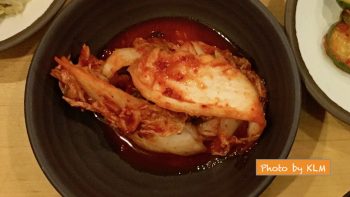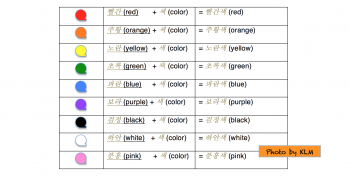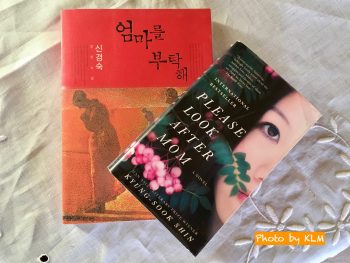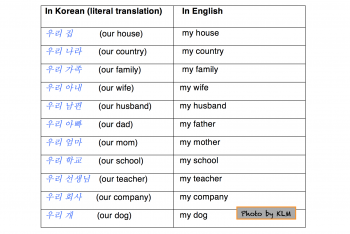All About Korean Kimchi Posted by Kyung-Hwa on Apr 5, 2017

When you think of Korean side dishes, what is the first one that comes to your mind? It is probably Kimchi made with Napa cabbage and red pepper powder. Kimchi is a traditional ethnic cuisine of Korea, and you will be surprised to know how many different kinds of Kimchi are available for you to…
Colors Are Everywhere! Posted by Kyung-Hwa on Mar 29, 2017

As the warmer air of spring rolls around and the pleasant spring sunlight tickles our faces, have you noticed a transition of colors around us? Trees have started to unfold their green leaves, and spring flowers have been released their vibrant white, pink, and purple petals around us. Do you know how to describe their…
How to Say Hello and Goodbye Like a Korean Posted by Kyung-Hwa on Mar 22, 2017

How many greetings and farewells do you know in Korean? Do you know what else to say after hello? If you are studying Korean, you are probably familiar with a basic hello and goodbye in Korean. In this post, I would like to introduce you to more ways to say hello and goodbye to someone, so…
Impeached South Korean President Posted by Kyung-Hwa on Mar 15, 2017

Do you know what has been going on in South Korea recently? Why did South Korea become a hot potato in the media again? This week’s post is a follow-up of my last article, A Crisis In Korean presidency. 박근혜 (Park Geun-hye) is a daughter of the third 대통령 (president), 박정희 (Park Chung-hee), and she became the first female…
Best-selling Korean Novel: Please Look After Mom Posted by Kyung-Hwa on Mar 8, 2017

Please Look After Mom, a novel by Kyung-Sook Shin, is available in both English and Korean. One of the most noteworthy novels among modern Korean literature, 엄마를 부탁해 (Please Look After Mom), has sold millions of copies and received worldwide attention. This책 (book) became the first Korean novel to make the New York Times 베스트셀러 (bestseller) list, was…
Mysterious Korean Word: 우리 Posted by Kyung-Hwa on Mar 1, 2017

Korean culture is more community focused, and this strong sense of collectivism is deeply permeated in the Korean language. If you study Korean, you will hear “ 우리_____” on a daily basis. Direct translation of “우리” is “we” or “our” in English. However, this is one of those Korean words you often do not want…
Like or Don’t Like in Korean Posted by Kyung-Hwa on Feb 22, 2017

Do you like studying Korean? Like or Don’t like can be used to express your interests or preferences in food, hobby, music, person, place, and thing. Knowing how to express your preferences would be a useful skill to communicate with Korean speakers. How would you answer these questions in Korean?: “What is your favorite Korean…


